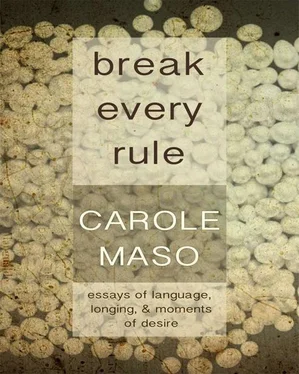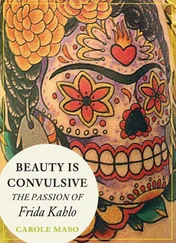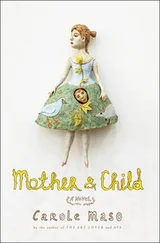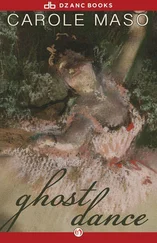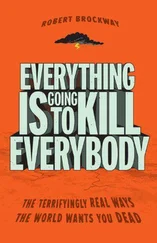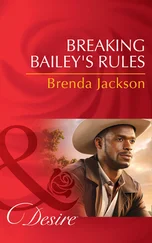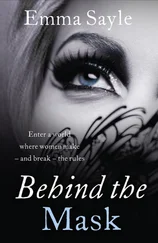If the creation of literary texts affords a kind of license, is a kind of freedom, dizzying, giddy — then why do we more often than not fall back on the old orthodoxy, the old ways of seeing and perceiving and recording that perception?
Why do we adopt the conventions of, for lack of a better word, the oppressor?
Is it because we’ve lost faith in our belief that language is capable of a kind of Utopia, speaking to myriad versions of inner and outer reality?
Or is it that we on the margins long secretly for nothing more than to be embraced by the mainstream? To become the center?
Is it that we want the security, the emotional, the financial security that comes with those who tailor their visions or in some way comply with the Agreement .
If language is desire, if syntax and rhythm and tone and color create worlds of desire, if we see, if we live out on the margin, then how come we so often write between the lines? We who are ostracized, estranged, despised, denied rights of every kind? Why do we write as if we were inside?
I do not feel in the position to judge or understand the motives of my fellow gay and lesbian writers. I am only here to pose some questions.
Why does realism equal verity? And whose verity is this? Why does realism equal accessibility? Might there be ways outside the standard models that could afford both reader and writer a few more options? Accessible in whole new ways.
Would disrupting or upsetting the lexical surfaces, and the deeper structures disrupt other contracts (social, political) we have entered with those who have continually tried to dismiss us?
If we joyfully violate the language contract, might that not make us braver, stronger, more capable of breaking other oppressive contracts?
Might our pleasure, our delight, our audacity become irresistible finally?
Would celebrating through the invention of new kinds of texts — ones that insisted on our own takes of the world, our own visions, our own realities — would this finally convince both us and others that we are autonomous, we are not them, not exactly, but we are nonetheless joyful and free? In short we too are complex human beings and cannot be so simply reduced or read.
And what if that were reflected in our prose? All the things that matter most.
If through language, through literature, through what we make we refuse to accept our limitations, if we are wild and unruly and unswerving in our conviction and irreverence, will those who try to contain us get it finally?
Might the old novel, one day, like the old ways of thinking about gender and race and sexuality, simply appear silly, outdated, quaint?
Might writing by women, by people of color, by gay men and lesbians be an active refusal of the dominant code, a subversion of meaning as it has been traditionally constructed, for something perhaps more strange, elusive, other?
Carla Lonzi and Rivolta Femminile from “I Say I”:
You would like to keep me under your guardianship.
I distance myself and you do not forgive me.
You do not know who I am and you make yourself my mediator.
What I have to say I will say on my own.
Rupture, Verge, and Precipice Precipice, Verge, and Hurt Not
Be not afraid. The isle is full of noises,
Sounds and sweet airs that give delight and hurt not.
— WILLIAM SHAKESPEARE
Y OU ARE AFRAID. You are afraid, as usual, that the novel is dying. You think you know what a novel is: it’s the kind you write. You fear you are dying.
You wonder where the hero went.
You wonder how things could have gotten so out of hand.
You ask where is one sympathetic, believable character?
You ask where is the plot?
You wonder where on earth is the conflict? The resolution?
The dénouement ?
You imagine yourself to be the holder of some last truth. You imagine yourself to be in some sinking, noble, gilt-covered cradle of civilization.
You romanticize your fin de siècle , imbuing it with meaning, overtones, implications.
You are still worried about TV.
You are still worried about the anxiety of influence.
You say there will be no readers in the future, that there are hardly any readers now. You count your measly 15,000—but you have always underestimated everything.
You say language will lose its charms, its ability to charm, its power to mesmerize.
You say the world turns, spins away, or that we turn from it. You’re pretty desolate.
You mutter a number of the usual things: You say, “…are rust,” “…are void” “…are torn.”
You think you know what a book is, what reading is, what constitutes a literary experience. In fact you’ve been happy all these years to legislate the literary experience. All too happy to write the rules.
You think you know what the writer does, what the reader does. You’re pretty smug about it.
You think you know what the reader wants: a good old-fashioned story.
You think you know what a woman wants: a good old-fashioned—
You find me obnoxious, uppity. You try to dismiss me as hysterical or reactionary or out of touch because I won’t enter that cozy little pact with you anymore. Happy little subservient typing “my” novel, the one you’ve been dictating all these years.
You rely on me to be dependent on you for favors, publication, $$$$$$$$, canonization.
You are afraid. Too smug in your middle ground with your middlebrow. Everything threatens you.
You say music was better then: the Rolling Stones, the Who, the Beatles, Fleetwood Mac. You’re boring me.
You say hypertext will kill print fiction. You pit one against the other in the most cynical and transparent ways in hopes we’ll tear each other to bits
while you watch. You like to watch. Hold us all in your gaze.
Just as you try to pit writing against theory, prose against poetry, film against video, etc., as you try to hold on to your little piece of the disappearing world.
But I, for one, am on to you. Your taste for blood, your love of competition, your need to feel endangered, beleaguered, superior. Your need to reiterate, to reassert your power, your privilege, because it erodes.
Let’s face it, you’re panicked.
You think an essay should have a hypothesis, a conclusion, should argue points. You really do bore me.
You’d like to put miraculous, glowing glyphs on a screen on one side and modest ink on pretty white paper on the other.
You set up, over and over, false dichotomies. Easy targets. You reduce almost everything, as I reduce you now. Tell me, how does it feel?
You’re really worried. You say sex will be virtual. The casting couch, virtual. But you know as well as I do that all the other will continue, you betcha, so why are you so worried?
You fear your favorite positions are endangered. Will become obsolete.
You believe you have more to lose than other people in other times.
You romanticize the good old days — the record skipping those nights long ago while you were making love, while you were having real sex with—
Hey, was that me? The Rolling Stones crooning: “I see a red door and I want it painted black, painted black, painted black…”
Want it painted black.
Or: “Brown Sugar, how come you dance so good, dance so good, dance so good…???”
You want to conserve everything. You worship false prophets.
You’re sick over your (dwindling) reputation.
You’re so cavalier, offering your hand….
Jenny Holzer: “The future is stupid.”
I remember the poet-dinosaurs that evening at the dinner table munching on their leafy greens, going extinct even as they spoke, whispering “language poetry” (that was the evil that night), shuddering.
Читать дальше
